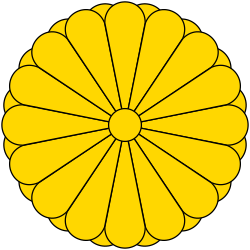| |||||||||||||||||||||||||||||||||||||||||||||||
All 300 seats in the House of Representatives 151 seats needed for a majority | |||||||||||||||||||||||||||||||||||||||||||||||
|---|---|---|---|---|---|---|---|---|---|---|---|---|---|---|---|---|---|---|---|---|---|---|---|---|---|---|---|---|---|---|---|---|---|---|---|---|---|---|---|---|---|---|---|---|---|---|---|
| |||||||||||||||||||||||||||||||||||||||||||||||
| |||||||||||||||||||||||||||||||||||||||||||||||
| This article is part of a series on |
 |
|---|
General elections were held in Japan on 15 March 1898.
| |||||||||||||||||||||||||||||||||||||||||||||||
All 300 seats in the House of Representatives 151 seats needed for a majority | |||||||||||||||||||||||||||||||||||||||||||||||
|---|---|---|---|---|---|---|---|---|---|---|---|---|---|---|---|---|---|---|---|---|---|---|---|---|---|---|---|---|---|---|---|---|---|---|---|---|---|---|---|---|---|---|---|---|---|---|---|
| |||||||||||||||||||||||||||||||||||||||||||||||
| |||||||||||||||||||||||||||||||||||||||||||||||
| This article is part of a series on |
 |
|---|
General elections were held in Japan on 15 March 1898.
A total of 605 candidates contested the elections; the Liberal Party nominated the most with 233, Shimpotō had 174, Kokumin Kyōkai 52 and Yamashita Club 26. The remaining 118 candidates were independents.
 | |||||
|---|---|---|---|---|---|
| Party | Votes | % | Seats | +/– | |
| Liberal Party | 105 | –2 | |||
| Shimpotō | 103 | +54 | |||
| Kokumin Kyōkai | 29 | –3 | |||
| Yamashita Club | 26 | New | |||
| Independents | 37 | +3 | |||
| Total | 300 | 0 | |||
| Total votes | 396,046 | – | |||
| Registered voters/turnout | 452,637 | 87.50 | |||
| Source: Statistics Bureau of Japan | |||||